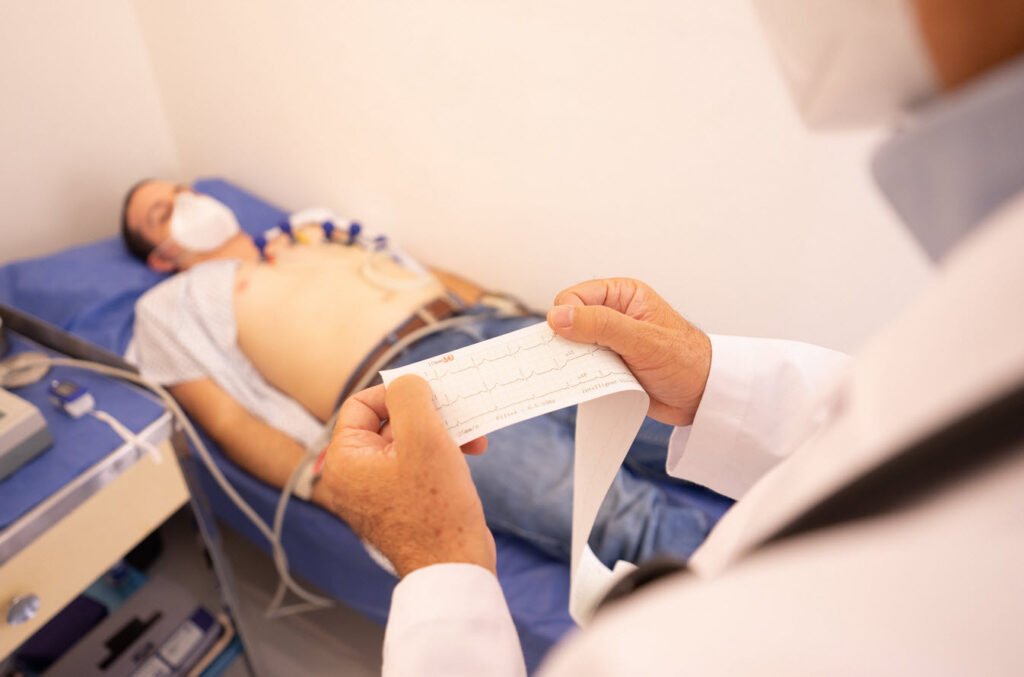Heart disease remains a formidable adversary, claiming numerous lives globally. It encompasses a spectrum of conditions, including coronary artery disease, heart failure, cardiomyopathy, and arrhythmias. Being aware of the signs and symptoms associated with heart disease is crucial for early detection and intervention.
- Chest Pain/Discomfort
- Shortness of Breath
- Fatigue
- Weakness
- Dizziness
- Palpitations
- Swelling
- Coughing
- Nausea
- Abdominal Discomfort
- Fluid Retention
- Bluish Skin Discoloration
- Rapid Pulse
- Lightheadedness
- Anxiety
- Sweating
- Fainting
- Difficulty Concentrating
- Heart Murmur
- Abnormal Blood Pressure
1. Chest Pain/Discomfort
One of the hallmark symptoms is chest pain or discomfort. Ranging from a mild ache to sudden, sharp pain, it can signal issues like artery blockages, irregular heartbeats, or an enlarged heart muscle.
2. Shortness of Breath
Difficulty in breathing is often indicative of the heart’s inability to pump sufficient blood, leading to reduced oxygen levels in the bloodstream.
3. Fatigue
Heart disease can induce a pervasive feeling of tiredness and exhaustion, as the heart struggles to pump oxygen-rich blood, resulting in a lack of energy.
4. Weakness
The diminished pumping capacity of the heart can lead to weakness, manifesting as a lack of strength and vitality.
5. Dizziness
Insufficient blood flow from the heart can cause dizziness, reducing the amount of oxygen reaching the brain.
6. Palpitations
Irregular heartbeats or the heart’s inability to pump enough blood may result in palpitations, an abnormal awareness of one’s own heartbeat.
7. Swelling
Accumulation of fluid in the legs, feet, and abdomen can occur due to the heart’s inefficiency in pumping blood, leading to fluid retention.
8. Coughing
Heart disease can cause a persistent cough, stemming from fluid buildup in the lungs due to inadequate blood circulation.
9. Nausea
A decrease in oxygen levels in the blood may induce feelings of nausea as a symptom of heart disease.
10. Abdominal Discomfort
Inadequate blood circulation may lead to abdominal discomfort, reflecting the reduced oxygen supply to the abdominal organs.
11. Fluid Retention
Heart disease can cause fluid retention in the body, leading to swelling and discomfort.
12. Bluish Skin Discoloration
Insufficient oxygen in the blood can cause the skin to turn bluish, particularly in areas with poor circulation.
13. Rapid Pulse
An irregular heartbeat or the heart’s failure to pump efficiently can result in a rapid pulse.
14. Lightheadedness
Reduced oxygen in the blood may cause lightheadedness, contributing to an overall sense of imbalance.
15. Anxiety
Heart disease can trigger anxiety, possibly due to an increase in stress hormones resulting from inadequate blood supply.
16. Sweating
The heart’s inability to circulate blood effectively may lead to excessive sweating.
17. Fainting
Sudden drops in blood pressure due to insufficient oxygen in the blood can result in fainting.
18. Difficulty Concentrating
Reduced oxygen levels in the blood may affect the brain’s ability to focus, leading to difficulty concentrating.
19. Heart Murmur
An abnormal sound detected through a stethoscope can indicate heart disease, possibly caused by valve defects, irregular heartbeats, or arterial plaque buildup.
20. Abnormal Blood Pressure
Heart disease can contribute to abnormal blood pressure readings, as the heart struggles to maintain proper circulation.
Being vigilant about these signs and symptoms can empower individuals to seek medical attention promptly, potentially preventing the progression of heart disease and its severe consequences. Regular check-ups, a healthy lifestyle, and prompt medical consultation are crucial in maintaining heart health and preventing the devastating effects of heart disease.



